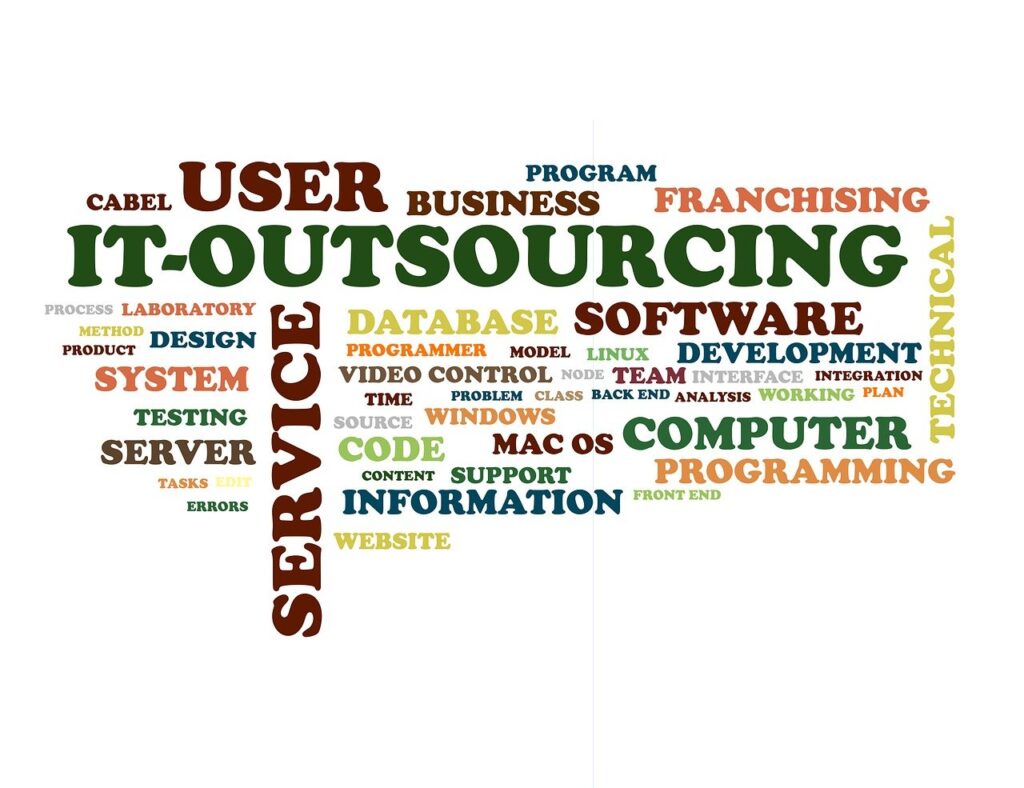In today’s highly competitive business landscape, having a competitive edge is crucial for success. Businesses need to constantly evolve and adapt to stay ahead of the curve. One way to achieve this is by leveraging complete business solutions that encompass various aspects of operations and management. The concept of business solutions, their importance in achieving a competitive edge, the many types of solutions that are accessible, and how to select and apply the most suitable one for your company will all be covered in this article.
Introduction
Being completely reliant on conventional approaches is no longer sufficient in today’s fast-paced and changing corporate environment. Businesses must welcome innovation and use cutting-edge technology to optimize workflows, boost productivity, and increase customer satisfaction if they want to succeed. Complete business solutions can be used in this situation.
Understanding Business Solutions
Business solutions refer to comprehensive strategies, tools, and technologies designed to address specific challenges and optimize various aspects of a business. These solutions can range from software applications and cloud-based platforms to consulting services and specialized methodologies. The primary objective is to enhance productivity, reduce costs, and gain a competitive advantage.
The Importance of a Competitive Edge
In a highly competitive market, having a competitive edge can make all the difference. It allows businesses to differentiate themselves from competitors, attract more customers, and increase market share. A strong competitive edge enables businesses to respond effectively to market trends, deliver unique value propositions, and stay ahead in the race.
Types of Business Solutions
There is a wide range of business solutions available, each catering to different needs and objectives. Some common types include:
1. Customer Relationship Management (CRM) Solutions
CRM solutions help businesses manage and optimize customer relationships. They provide tools for tracking leads, managing sales pipelines, and enhancing customer engagement and retention.
2. Enterprise Resource Planning (ERP) Solutions
ERP solutions integrate and streamline various business processes such as finance, inventory management, human resources, and supply chain management. They enable real-time data visibility and improve overall operational efficiency.
3. Marketing Automation Solutions
Marketing automation solutions automate repetitive marketing tasks, such as email campaigns, lead nurturing, and social media management. They help businesses save time, increase marketing effectiveness, and generate better leads.
4. Business Intelligence (BI) Solutions
BI solutions provide valuable insights by analyzing complex data sets. They enable businesses to make data-driven decisions, identify trends, and optimize performance across departments.
Benefits of Business Solutions
Implementing the right business solution can yield several benefits for your organization. Some key advantages include:
- Streamlined processes and improved efficiency
- Enhanced collaboration and communication
- Better decision-making based on real-time data
- Increased productivity and cost savings
- Improved customer experience and satisfaction
- Scalability and adaptability to future growth
Factors to Consider
When selecting a business solution for your organization, it’s essential to consider various factors. Some crucial considerations include:
- Specific business requirements and objectives
- Budget and affordability
- Scalability and integration capabilities
- Vendor reputation and support
- Ease of implementation and user-friendliness
- Security and data privacy measures
Choosing the Right Business Solution
To choose the right business solution, start by identifying your organization’s pain points and goals. Conduct thorough research, evaluate different options, and consider seeking expert advice if needed. Select a solution that aligns with your long-term vision and has a proven track record of delivering results.
Implementing Business Solutions
Implementing a business solution requires careful planning and execution. Define clear implementation goals, establish a dedicated project team, and communicate the changes effectively to stakeholders. Proper training and support should be provided to ensure a smooth transition and maximize the solution’s benefits.
Measuring Success
Measuring the success of a business solution is crucial to gauge its effectiveness and make necessary adjustments. Define key performance indicators (KPIs) and regularly monitor them to track progress. Analyze data and user feedback to identify areas for improvement and implement corrective measures as needed.
Case Studies
Real-life case studies can provide valuable insights into how businesses have benefited from implementing the right solutions. They offer practical examples and demonstrate the impact of business solutions in different industries and scenarios.
Future Trends
The field of business solutions is constantly evolving, driven by advancements in technology and changing market dynamics. Keep an eye on emerging trends such as artificial intelligence, blockchain, and automation. Stay informed and be prepared to adapt your business strategy accordingly to stay competitive.
Conclusion
In today’s highly competitive business environment, gaining a competitive edge is essential for sustainable success. Complete corporate solutions offer a comprehensive approach to optimize operations, enhance productivity, and deliver superior customer experiences. By understanding the different types of solutions available, considering crucial factors, and implementing the right solution, businesses can stay ahead of the competition and achieve long-term growth.
FAQs
1. How do business solutions help in gaining a competitive edge? Business solutions optimize processes, improve efficiency, and provide valuable insights, enabling businesses to differentiate themselves and respond effectively to market trends.
2. Are business solutions only for large organizations? Business solutions are available for organizations of all sizes. There are solutions tailored to the specific needs and budgets of small and medium-sized businesses as well.
3. Can I integrate multiple business solutions into my organization? Yes, many solutions offer integration capabilities, allowing you to combine different tools and technologies to meet your specific requirements.
4. How long does it take to implement a business solution? The implementation timeline varies depending on the complexity of the solution and the size of your organization. It can range from a few weeks to several months.
5. Can business solutions adapt to future growth and changes? Scalability and adaptability are key considerations when selecting a solution. Choose a solution that can grow with your organization and accommodate future needs.



